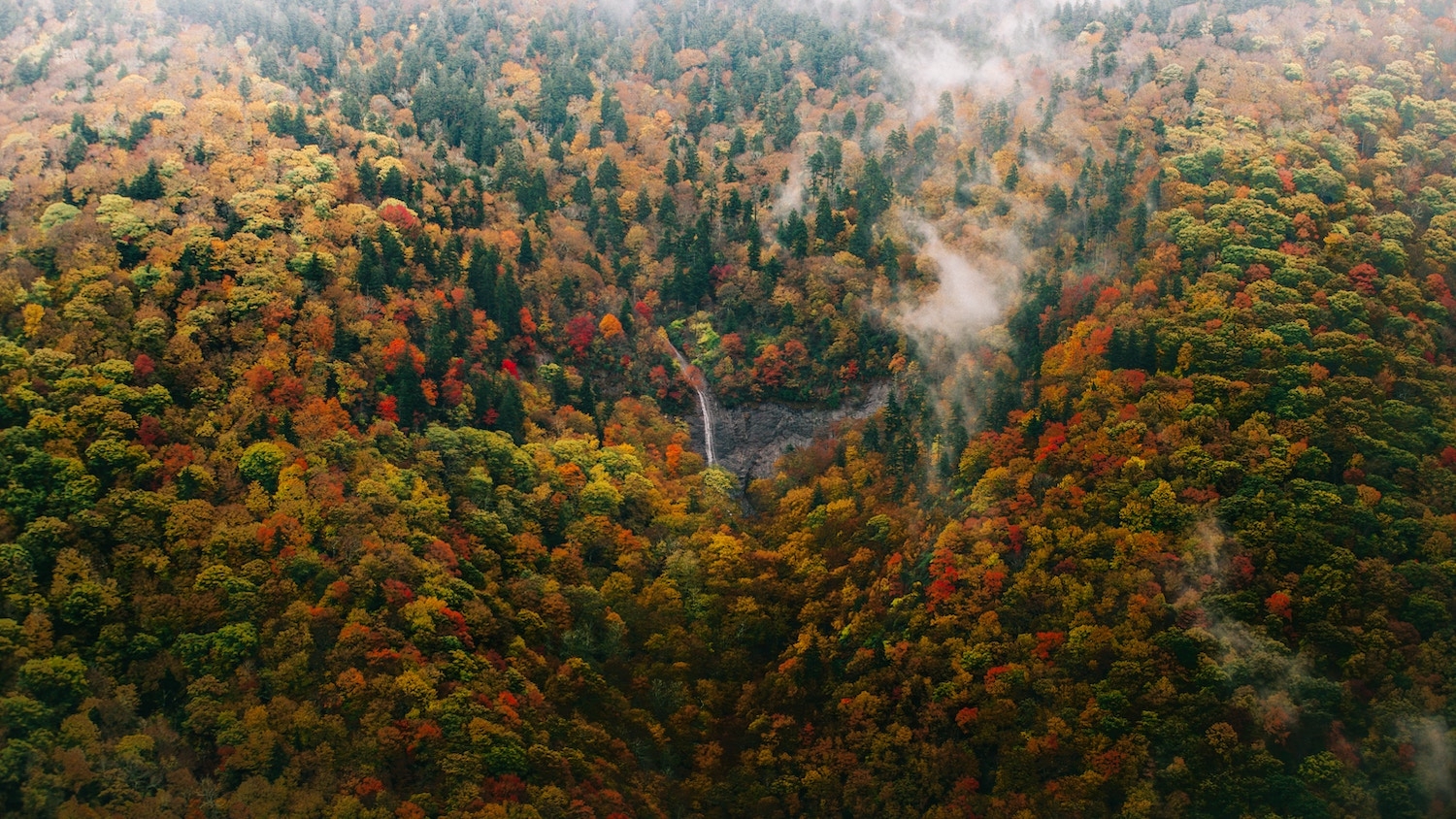Fall Foliage in North Carolina: What to Expect This Year

With summer transitioning into fall, North Carolina’s trees will soon begin to transform into various shades of orange, yellow, red and purple.
Fall foliage should begin in the upper elevation of the mountains by the end of September and then gradually spread across the state, with peak colors occurring as early as mid-October.
“If we have warm, sunny days and cool nights with temperatures slightly above freezing, the timing and vibrancy of fall foliage should be similar to past years,” said Robert Bardon, a professor of forestry and environmental resources at NC State.
The cooler nighttime temperatures slow down the production of chlorophyll — the pigment that gives leaves their green color. This allows the carotenoid (orange) and xanthophyll (yellow) pigments to emerge from within.
Meanwhile, sunlight increases sugar production in the leaves and the cooler cooler nighttime temperatures trap the sugar, producing a third pigment known as anthocyanin. Anthocyanin creates the more vibrant hues of red and purple seen during the fall.
The latest three-month climate forecast from the National Oceanic and Atmospheric Administration (NOAA) shows average temperatures and a slight chance of above-average precipitation for much of North Carolina this fall.
Above-average precipitation is usually accompanied by cloudy weather that blocks out the sunlight necessary for the production of anthocyanin.
“Rainy weather would lead to less vibrant reds and more yellow colors,” Bardon said.
Bardon added that tropical storms with heavy rainfall and strong winds also impact fall foliage by knocking leaves down, resulting in a shorter season.
NOAA scientists recently increased the likelihood of an above-normal Atlantic hurricane season from 30% to 60%. Hurricane season ends on November 30.